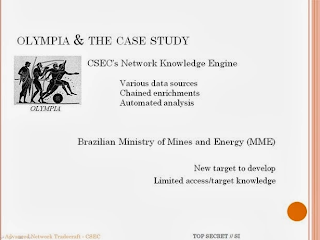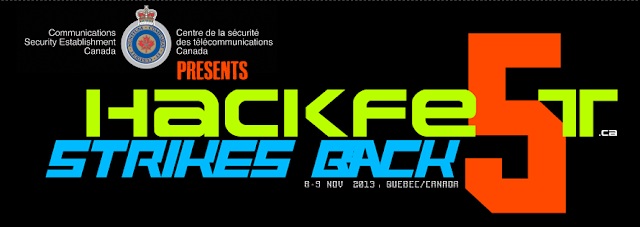On Monday the Senate Committee on National Security and Defence heard from the watchdogs of both CSIS and CSEC - Chuck Strahl, Chair of the Security Intelligence Review Committee (SIRC), and CSEC Commissioner Jean-Pierre Plouffe.
Here Plouffe is explaining to Senator Romeo Dallaire why Justice Mosley slapped down CSIS for outsourcing their spying to their Five Eyes partners (US, UK, NZ, and Australia) via CSEC. Plouffe :
"CSIS has a jurisdiction which is limited to Canada, whereas CSE's jurisdiction reaches abroad. So CSIS, in accomplishing its activities, believes it has need of assistance from allies abroad and in order to obtain this, CSIS has to go through CSE because CSE deals directly with allies. In Justice Mosley's decision, CSIS asked for assistance from CSE because both individuals in question were abroad. And what happened is unfortunately CSIS did not disclose to Justice Mosley that they sought assistance from Five Eyes. So it is legal for CSE to call on the Five Eyes, however in this case there was a warrant from the court that specified it be within Canada not abroad. Mosley said CSIS was lacking in candor and good faith."
Plouffe added this has "complicated" CSEC's relationship with the NSA and other partners.
The impression you get from listening to Plouffe is that the Five Eyes partners share just about anything and everything, with the Canadian contact being CSEC.
CSIS watchdog Chuck Strahl addressed this as problem for the privacy of Canadians, saying "we must put legal caveats on CSIS/CSE-generated intel" shared with Five Eyes partners and third parties :
"CSIS is concerned with erosion of control of intelligence given to CSEC and by extension to the Five Eyes community."
"CSIS has developed information privacy protocols with only one Five Eyes partner."
While Strahl doesn't reveal which Five Eyes partner it is we do have a privacy protocol with, a 2009 Memo of Understanding between the NSA and its Israeli counterpart does mention one between NSA and Canada. This was the Snowden-leaked doc which revealed an NSA agreement purporting to share raw unfiltered intelligence data with Israel,
who is not a Five Eyes member, with the proviso that Israel weed out intel about Americans and other Five Eyes citizens .
Or as Strahl put it : "A Five Eyes partner may act independently on CSIS-originated info."
He said his office was limited to the oversight of CSIS and so his investigators were unable to follow threads that led into CSEC. Likewise Plouffe said his office could not stray into investigating CSIS.
This was not, Strahl said, what O'Connor and Iacobucci had in mind when they each recommended a joint oversight, adding there is "no provision in current legislation, which is 30 years old, for parliamentary oversight", the only Five Eyes partner not to have any.
On Abdelrazik, Strahl said CSIS created an "exaggerated threat assessment" and "inappropriately disclosed classified information".
The senators seemed far more concerned with what new measures had been put in place to prevent a "Snowden nightmare" in Canada than in the content his leaks revealed. They didn't ask a single question of Plouffe or Strahl about spying on the G20 in Canada and Brazil or allowing the NSA to build backdoors into internet encryption under our watch.
Not one.
For his part, Strahl said "Snowden has caused us to question how we work and that's good."
Asked what possessed him to come out of retirement last year to head up SIRC, Strahl laughed and said it was classified.
I'll bet. SIRC has had an interim chair since the former SIRC chair and fraudster appointed by Harper, Dr. Arthur Porter, resigned in disgrace in 2011.









